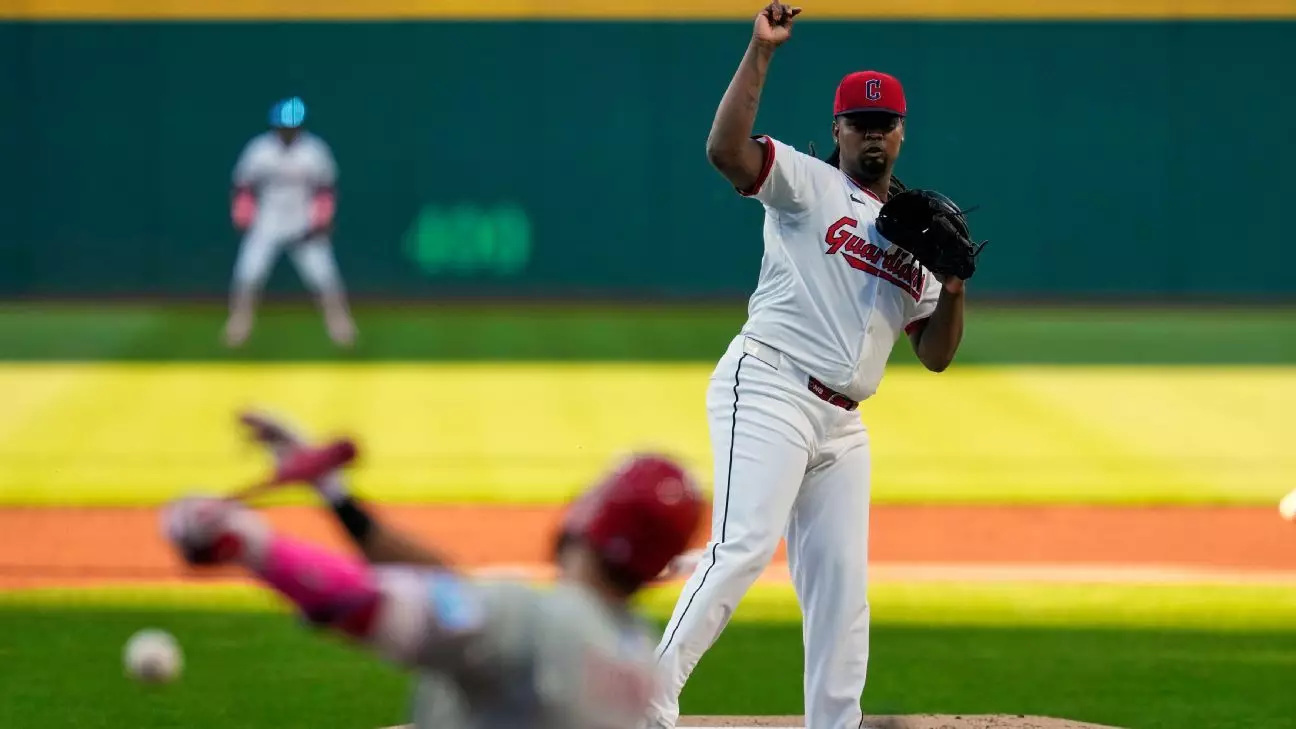Major League Baseball, an institution long revered for its storied legacy and tradition of fair play, now finds itself embroiled in a controversy that threatens to tarnish its reputation. The recent investigation into Cleveland Guardians’ pitcher Luis Ortiz, prompted by alerts from a betting-integrity firm, lays bare an uncomfortable truth: the sanctity of the game is increasingly fragile under the weight of modern gambling practices. This development exposes not only the perilous intertwining of sports and betting but also raises fundamental questions about the league’s capacity to safeguard its integrity.
From the moment sportsbooks flagged unusual betting activity surrounding Ortiz’s pitches, alarm bells should have sounded—yet the response has been cautious, even defensive. Such microbets, commonplace in the betting industry, now cast a long shadow over competitive integrity. As the league places Ortiz on paid leave amidst ongoing investigations, the insinuation of potential misconduct looms ominously. The optics are damning: fans, players, and stakeholders are forced to question whether the game they’ve cherished is still pure or increasingly compromised by illicit influences.
The Fragile Line Between Betting and Corruption
The scandal spotlights a disturbing trend: the growing normalization of microbets on individual plays, such as the outcome of a single pitch. These wagers, initially viewed as harmless entertainment, have become a gateway for manipulation and corruption. When a pitcher’s very first pitch attracts suspicion, it underscores the sinister potential of such betting avenues. It’s not enough for MLB to simply monitor betting activity; rigorous safeguards must be in place to prevent such vulnerabilities from undermining the sport’s credibility.
Luis Ortiz’s case exemplifies the perilous uncertainty that accompanies the expanding gambling landscape within professional sports. His sudden placement on leave reflects a league painfully aware of how easily the integrity of the game can be compromised—yet slow to wholeheartedly confront the root issues. The lack of clarity around the investigation leaves fans with a sense of unease, questioning whether baseball is equipped to detect and prevent shady dealings before they compromise the sport’s core principles.
MLB’s Troubling Response to Gambling Scandals
The league’s response, characterized by paid suspensions and guarded statements, reveals an unsettling ambivalence towards gambling’s dark side. While MLB has not yet issued definitive findings, the emphasis on confidentiality and the strategic timing of Ortiz’s leave suggest a cautious approach—perhaps driven more by fear of losing public trust than by a genuine effort to uphold integrity.
This hesitance is not just a failure of leadership; it signifies a deeper, systemic issue. The MLB’s past scandals—ranging from the high-profile Tucupita Marcano betting ban to the disgrace of umpire Pat Hoberg—highlight a pattern of reactive measures rather than proactive reforms. As gambling becomes more embedded in the fabric of sport, the league must confront its own vulnerabilities. Merely responding to scandals as they emerge is insufficient; comprehensive measures are necessary to prevent such crises altogether.
The Broader Cultural Shift and Its Discontents
This controversy exposes a stark reality: baseball is at a crossroads. The sport’s traditional values of honor and fair competition are under attack from an evolving betting culture that emphasizes quick, micro-level wagers—often associated with sports betting’s more aggressive side. Given the current climate, players like Ortiz are caught between the allure of lucrative betting markets and the risk of tarnishing their careers.
MLB’s challenge is both cultural and operational. The league must redefine its stance on gambling, emphasizing ethical boundaries while collaborating with regulators to establish clear, enforceable standards. The current approach, which seems more reactive than preventative, jeopardizes long-term fan trust. Baseball’s essence lies in the purity of competition, yet the rapid expansion of betting options threatens to erode this foundation unless decisive, transparent action is taken.
Beyond the Ballpark: The Cost of Compromise
Ultimately, the Ortiz investigation underscores a broader societal issue: the clash between traditional sports values and the pervasive influence of gambling. While responsible betting can be a form of entertainment, unregulated and unscrutinized betting practices create fertile ground for corruption. If betrayed, fans lose faith—not only in individual players but in the sport’s integrity as a whole.
The league’s struggle to manage these risks reflects a deeper need for introspection. Baseball stands at a pivotal moment where it must choose whether to embrace a new era of betting or to resist its darker consequences. Falling short could mean more scandals, diminished reputation, and a fractured fan base that once believed in the sport’s unassailable honor. The challenge is to forge a path that preserves the game’s core values amid the pressures of a gambling-driven age.

